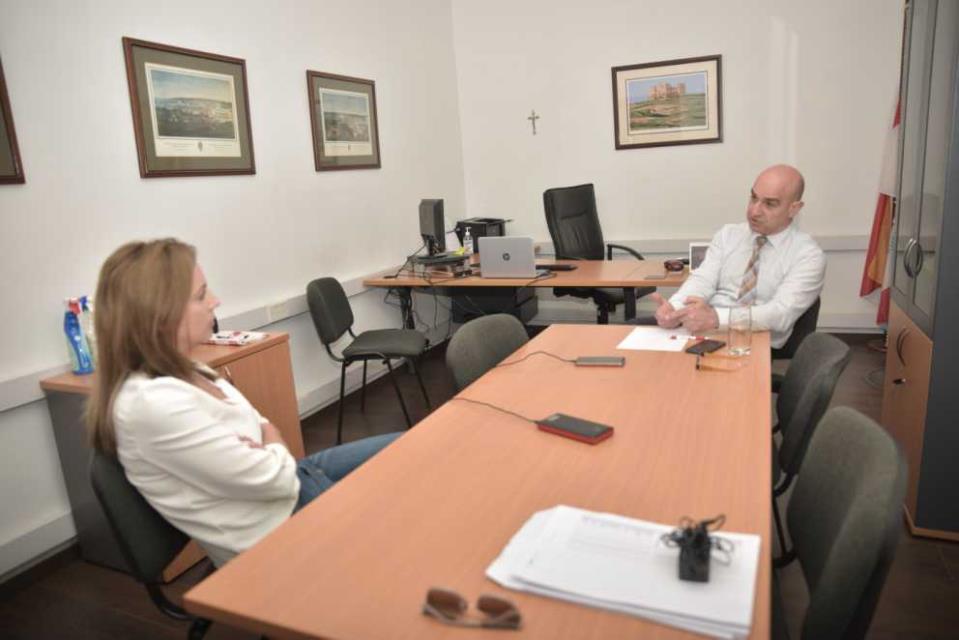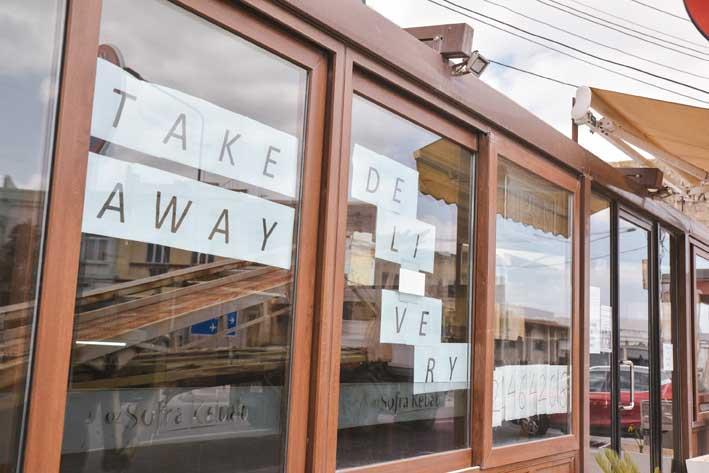The Malta Tourism Authority (MTA) is not there to fine but to ensure that the COVID-19 closure law is being adhered to, Compliance and Regulatory Director David Mifsud told The Malta Independent on Sunday.
Following the announcement of the legal notice which closed or limited the operations of bars, restaurants, gyms, casinos, cinemas and bingo halls, inspections were carried out by MTA officers, who tallied a total of 13 establishments breaking the law, by the time of writing.
The special law, entitled "Closure of Places Open to the Public", ordered establishments which typically fall under MTA, including bars, restaurants, snack bars, and also other establishments like massage parlours and gymnasiums, which do not usually fall under the remit of MTA.
Mifsud, however, explained that whilst such establishments do not usually fall under MTA remit, for this legal notice, MTA has taken on monitoring operations.
He also pointed out that "closure" does not apply across the board because restaurants, snack bars and kiosks can offer takeaway and delivery services, "and we must make sure this law is being followed."

This precautionary measure came into effect on 17 March 2020 at 23.59, and Mifsud explained that until such time that legal notice for Enforcement was promulgated, on the 19 March 2020, MTA officers did rounds to educate people on the legal notice.
The €3,000 fine was subsequently introduced, and Mifsud explained that the fine is the same, no matter the operation or breach. He said, however, that "we are not there to fine but to ensure they are ensuring the legal notice. The best way of doing so is by making and maintaining frequent visits, at all times of the day and night. To keep monitoring."
A Standard Operating Procedure (SOP) was set up by the Compliance and Regulatory Directorate so as officers from the same Directorate would carry out planned checks, at assigned areas, to see whether the directives issued are being adhered to.
"Our philosophy was contrary to what people may believe, that we would enforce at the start but then slow down. We started slowly and are now monitoring at full force," Mifsud explained. He believes that the more you monitor, the less you are going to fine, because people know you are there.
Planned checks were assigned and are normally carried out in three shifts, during the day and night. "At the start, until we got used to the system, we were doing around 500 to 700 checks a day, now it even goes up to 1,200 a day." So far, MTA officers have carried out nearly 40,000 checks in Malta and Gozo.
This was possible as the authority temporarily assigned other personnel from other directorates that are currently less active due to the pandemic, resulting in the strengthening of manpower, Mifsud explained.
"Malta was divided into areas and these officers go round every road in each locality to find out if any establishments are breaching the law. Initially, we had five teams of two people each, which were eventually increased by another six teams."
On average, the officers cover all localities in Malta and Gozo every two days. The areas are rotated between the teams, and the officers are required to produce a list a and report of every establishment they visit.

When officers spot a potential breach, they identify themselves as MTA personnel and the operators who are in breach of the law are referred to the legal notice. Photographic evidence is also taken of the external facade and relevant details of personnel inside are taken.
One of the concerns, Mifsud said, was that although the officers are by law considered public officers, they are not uniformed personnel, and as a result, might encounter difficulties while giving direction or taking legal action.
Through a set of written operating procedures, the officers are instructed to move away from the site and request assistance of the police in situations where persons are uncooperative. To date, however, there were no such occurrences. There was only one occurrence where an operator did prolong his cooperation before he produced his identification documents.
People gathering outside establishments
The MTA also runs a 24-hour helpline were complaints can be made. Most complaints, related to the virus, concerning catering establishments, are filed by members of the public, who report people grouping outside catering establishments that are offering a takeaway service.
Such situations are regulated by other legal notices and does not fall within the remit of the MTA, but the police, if people are in groups of more than three. The MTA, however, still carries out an onsite visit to educate the people. This, however, takes up a lot of the officers' time, Mifsud noted.
There have been 13 breaches but there are some "borderline cases", as Mifsud calls them. Most of these borderline cases appertain to takeaway services, but clear guidelines have been issued in this regard, as to what consists a breach.
Mifsud explained what the guidelines are, saying that the clear-cut cases are those of finding patrons in a restaurant, which is not the case anymore. The issue comes about when operators who offer takeaway services also have an outside area which they manage, and which had been used to place tables and chairs prior to the COVID- 19 measures.
This outside area is considered an extension of the premises and if the clients consume the food or beverage they have purchased within that area, then this is not considered as a takeaway service.
In such instances, offering seating facilities in the outside area is considered a clear-cut breach.

But it is also considered so if a client is eating outside, perhaps sitting on the wall of the same area, and it is the operator's responsibility to inform the client to move out of the catering establishment.
If the outside area is owned by the restaurant or taken over, even illegally, by putting out tables or benches, then these are in breach of the legal notice as issued by the Superintendent of Health.
The fine is not issued on-site and is not issued by the MTA. The MTA files a report to the Health Authorities, who then issue the fine. The fine can either be paid straightaway or appealed.
Mifsud said he always stresses the fact that he is happier after checks are carried out and the officers report that no breaches were found. He added that, "we are doing these inspections in a determined and organised way. Regretfully, if there are occasions when breaches are noted, then we have to issue a fine."
Are applications for licenses still coming in?
At the moment, the Compliance and Regulatory Directorate is mostly operating in terms of COVID-19, as most tourism services are not operating. Most applications for licenses have also been suspended temporarily, due to the nature of the circumstances.
There are currently very few people who are still pursuing applications, however.
For holiday furnished premises, if all documentation at application stage have been presented the directorate sends a checklist as per legislation. The applicant is required to carry out a self-assessment of the premises and provide photos where relevant. A license is then issued temporarily for three months, to be extended possibly for a further three months.

The law allows for this process, due to the special circumstances, and Mifsud says he feels "quite safe doing it." Mifsud explains that this is being done to limit contact of the staff with people, which was especially concerning in the earlier parts of March since persons were still travelling in and out of the country
For other tourism operations, each application is dealt with on a case by case basis, always subject to having other essential documentation, such as those relating to health and safety.
"We are doing this as we acknowledge and understand that people may have invested in a property. By allowing them to operate in the current limited environment, it might go a long way to ensure their financial viability. On the other hand, there are those who want the licence in hand, so when the current measures are eased, or better still, over, he would be able to operate."